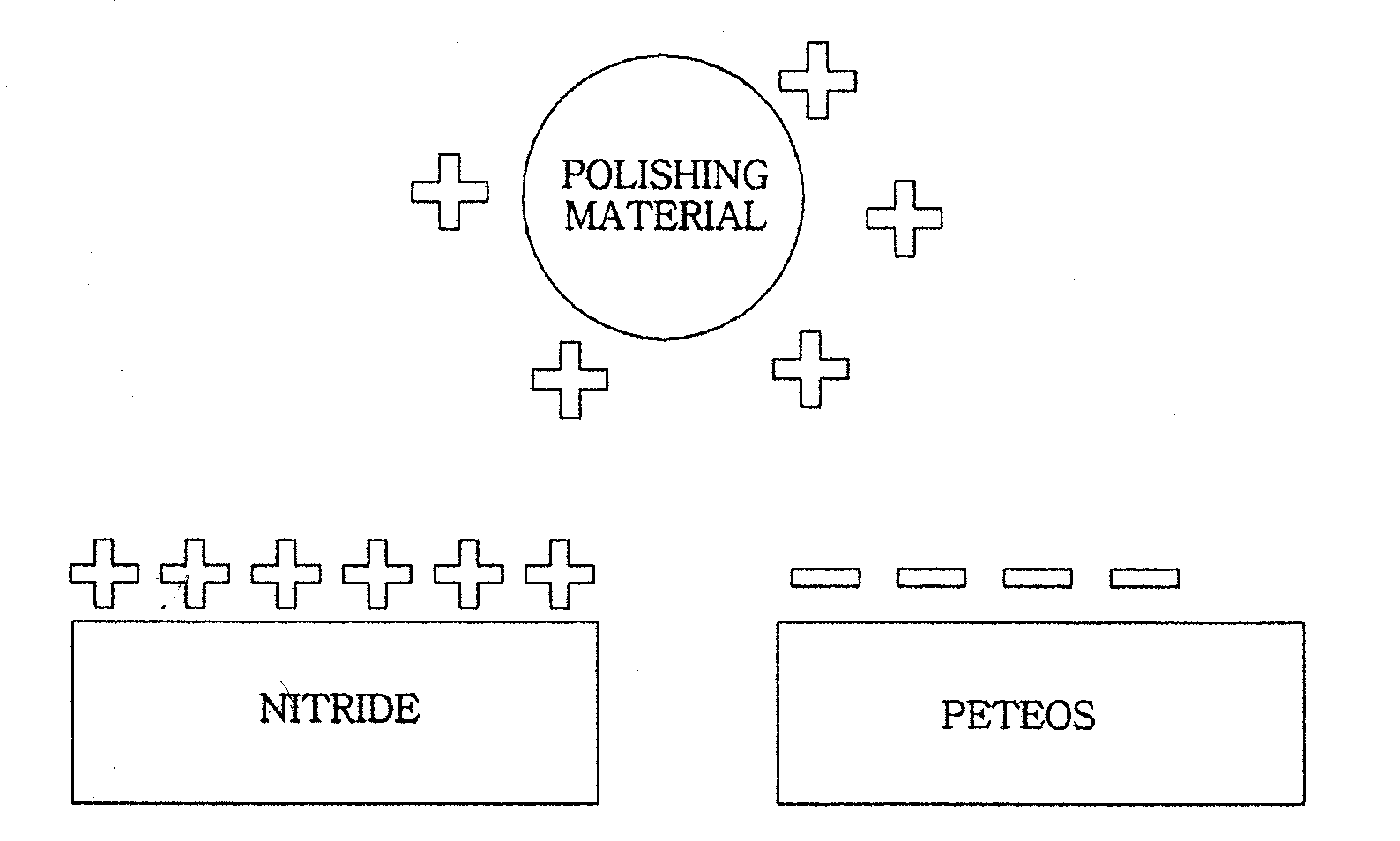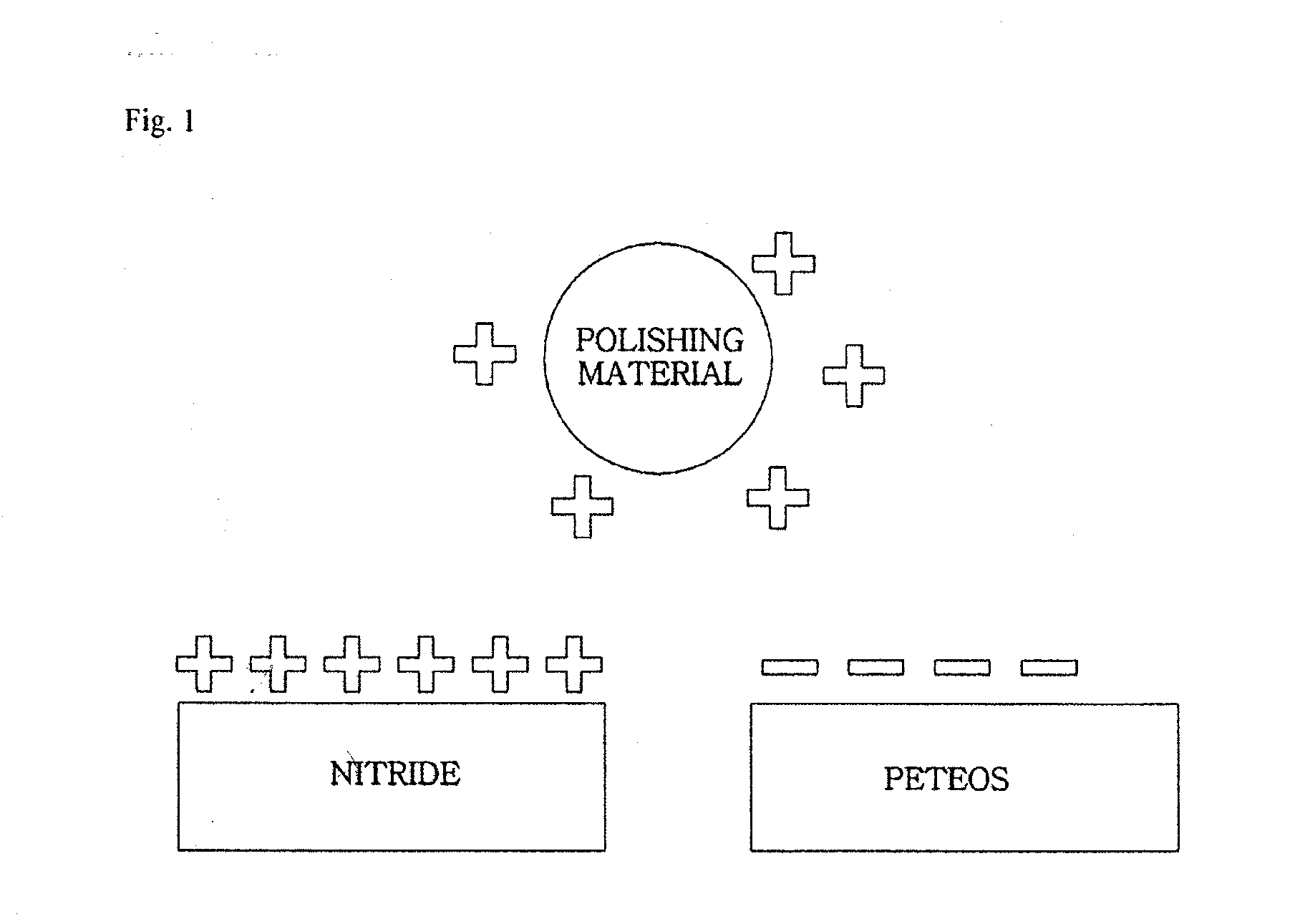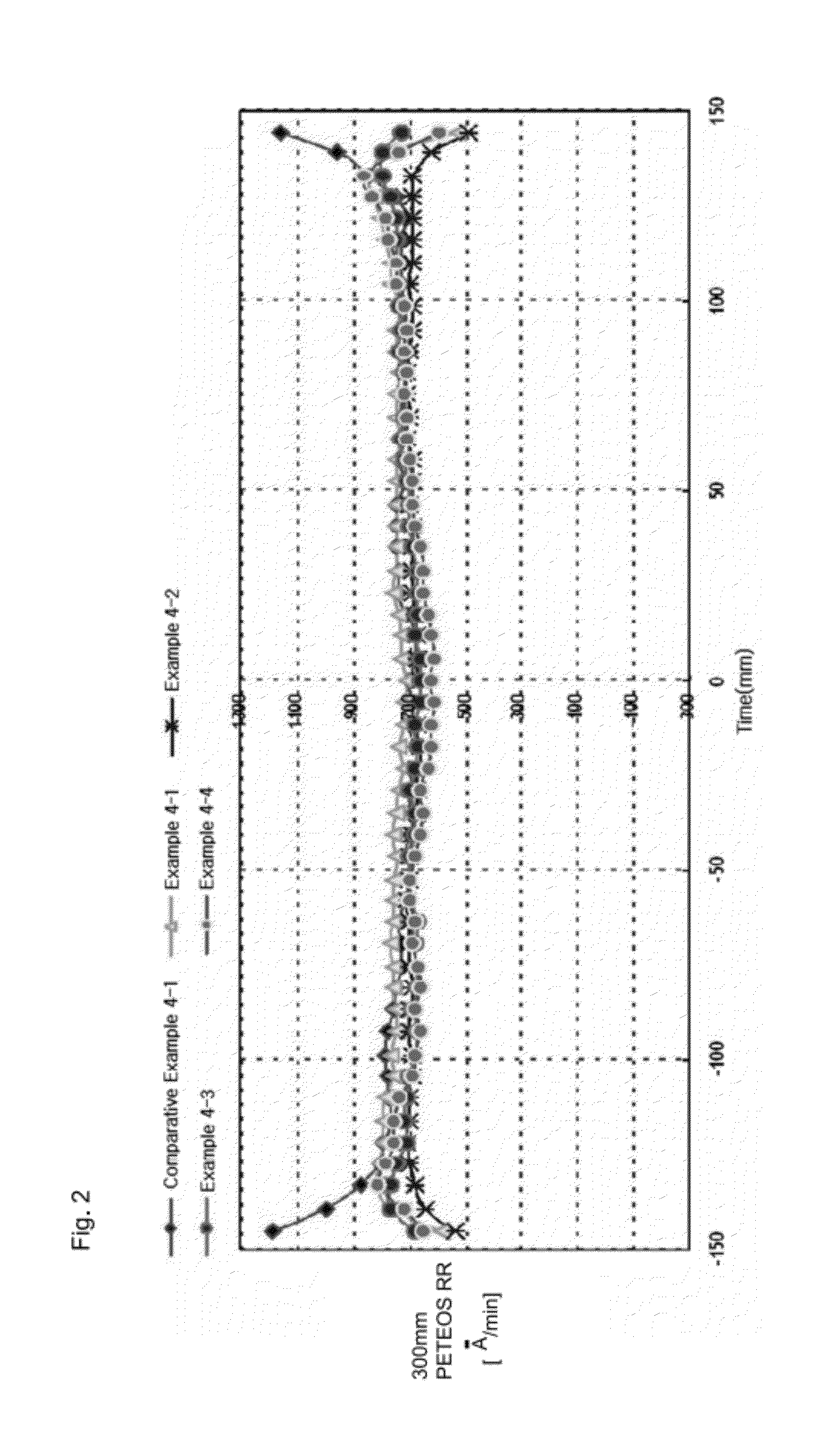Chemical mechanical polishing slurry composition and method for producing semiconductor device using the same
a technology of chemical mechanical polishing and slurry composition, which is applied in the direction of semiconductor devices, chemistry apparatus and processes, and other chemical processes, can solve the problems of particle contamination, long time required, and low rate of tantalum used as a barrier metal, and achieve excellent stability over time and dispersion stability, high polishing rate, and excellent degree of planarization
- Summary
- Abstract
- Description
- Claims
- Application Information
AI Technical Summary
Benefits of technology
Problems solved by technology
Method used
Image
Examples
experiment examples
[0054]A tantalum specimen wafer on which a thin film having a thickness of 1000 Å is deposited was used for polishing. For a silicon oxide film, a specimen wafer on which a PETEOS thin film having a thickness of 10000 Å was used, and for a silicon nitride film, a specimen wafer on which a thin film having a thickness of 3000 Å was used.
[0055]As for the polishing apparatus, Poli 400 (manufactured by G & P Technology, Inc.) was used, and a polishing test was carried out using a polishing pad, IC1000 (Dow Corning Corp.). The polishing conditions were such that the table / head speed was 93 / 87 rpm, the polishing pressure was 140 g / cm2, the slurry supply flow rate was 200 ml / min, and the polishing time was 30 seconds to 60 seconds.
[0056]The tantalum thin film thickness was determined by measuring the surface resistance using a four-point probe surface resistance analyzer (AIT Semiconductor, Inc.), and then calculating the thickness therefrom. The thin film thicknesses of PETEOS and silicon...
experiment example 1
[0057]Polishing slurry compositions of Examples and Comparative Examples were prepared in the compositions as indicated in the following Table 1. Furthermore, an evaluation of polishing was carried out for the prepared polishing slurry compositions, and the results are also presented in Table 1.
[0058]The colloidal silicas used in the following Table 1 were colloidal silicas having an average particle size of 35 nm, 55 nm and 75 nm, respectively, and each of the colloidal silicas was used after uniformly surface treating the colloidal silica with γ-aminopropyltriethoxysilane in an amount of 0.25% by weight relative to the total amount of the polishing agent.
[0059]Furthermore, a polishing slurry was prepared in a composition including 5% by weight of a polishing material, 0.1% by weight of 5-aminotetrazole as a corrosion inhibitor, and 1.0% by weight of hydrogen peroxide as an oxidizing agent. During the preparation of the slurry, the slurry was adjusted to a desired pH value using ni...
experiment example 2
[0061]An evaluation of polishing was carried out by changing the pH value of the compositions of Example 1-2. The results are presented in the following Table 2.
TABLE 2Content ofPETEOSSiNPETEOSExperimentpolishingRRRRRR / SiNExamplepHColloidal silicamaterial (wt %)(Å / min)(Å / min)RRExample 2-13.0055 nm,512222405.09silane-treatedExample 2-23.4055 nm,513592475.50silane-treatedExample 2-23.9055 nm,512943004.31silane-treatedComparative2.0055 nm,52214080.54Example 2-1silane-treatedComparative5.0055 nm,5———Example 2-2silane-treated
[0062]As can be seen from Table 2, the polishing rate for PETEOS reached the maximum at pH 3.4, and the polishing rate for a silicon nitride film tended to increase as the pH increased. At pH 5, aggregation of the polishing material occurred.
PUM
 Login to View More
Login to View More Abstract
Description
Claims
Application Information
 Login to View More
Login to View More - R&D
- Intellectual Property
- Life Sciences
- Materials
- Tech Scout
- Unparalleled Data Quality
- Higher Quality Content
- 60% Fewer Hallucinations
Browse by: Latest US Patents, China's latest patents, Technical Efficacy Thesaurus, Application Domain, Technology Topic, Popular Technical Reports.
© 2025 PatSnap. All rights reserved.Legal|Privacy policy|Modern Slavery Act Transparency Statement|Sitemap|About US| Contact US: help@patsnap.com



